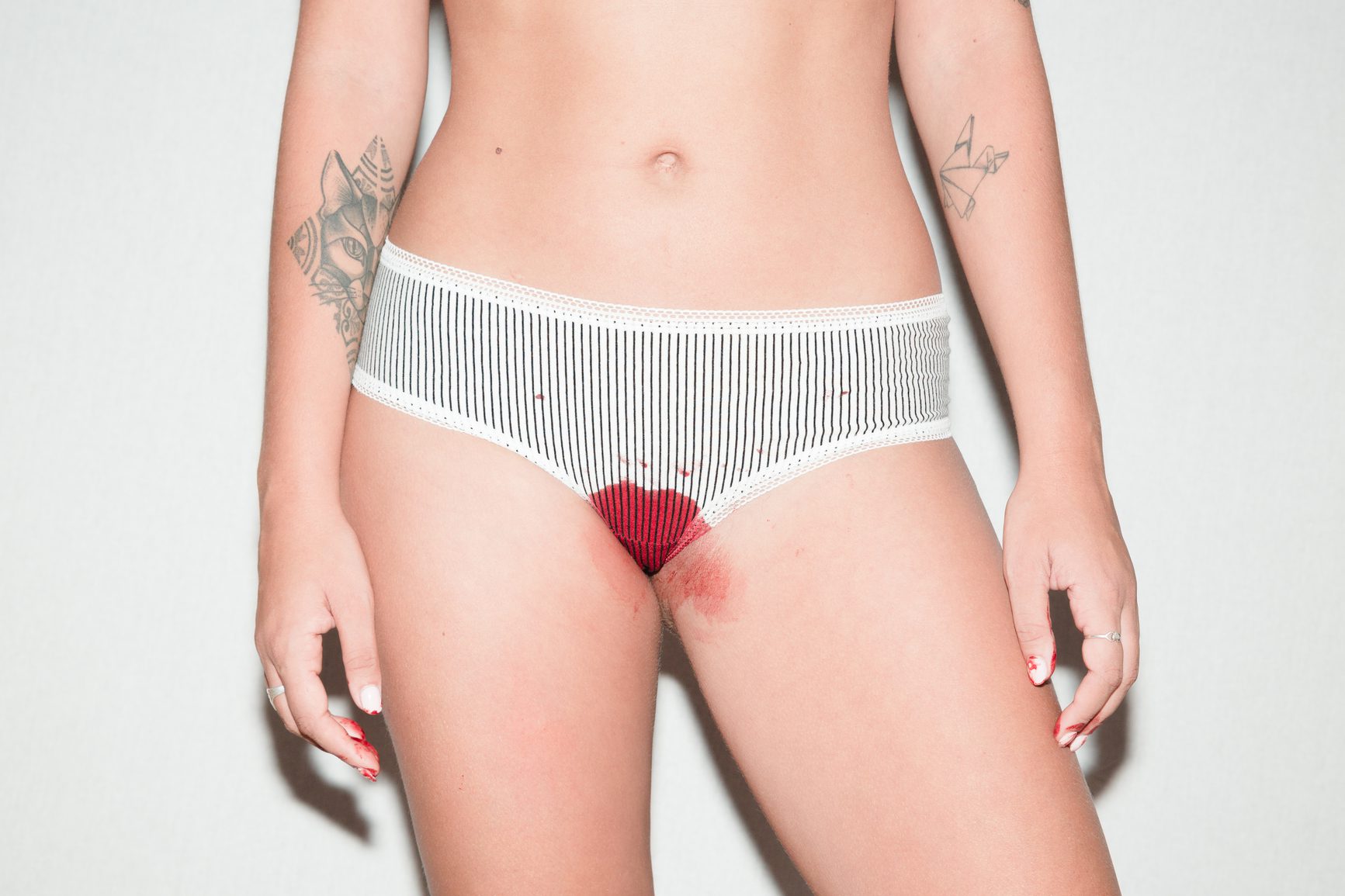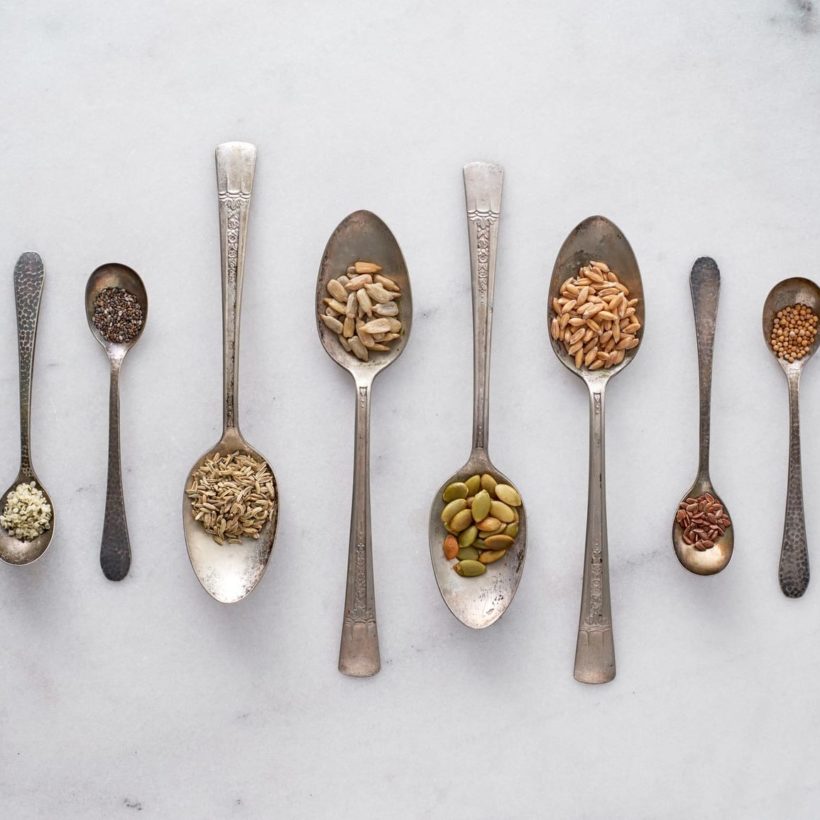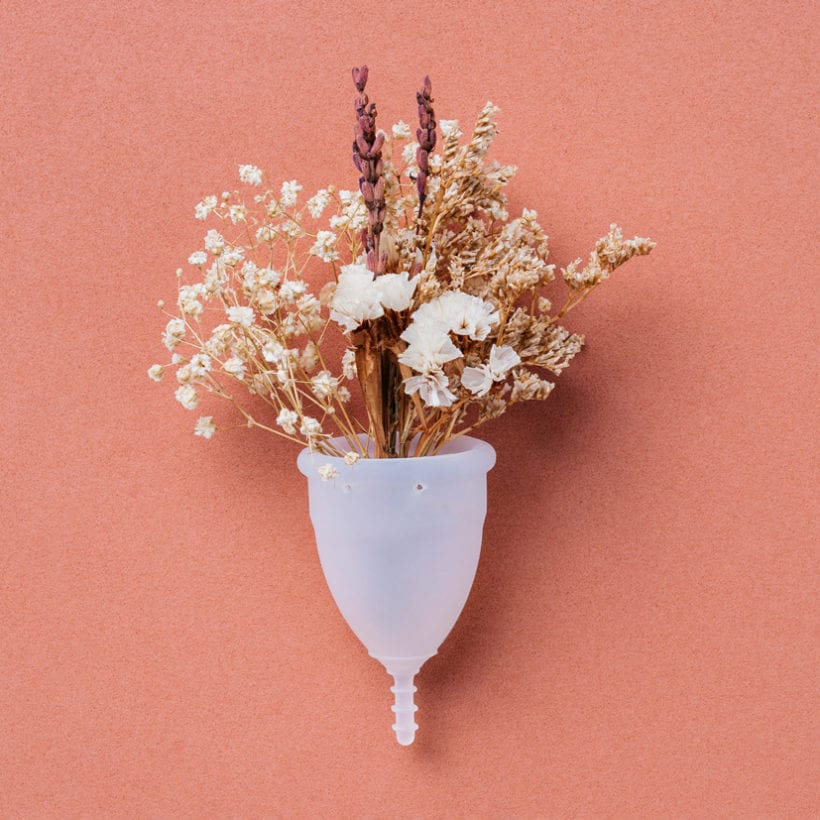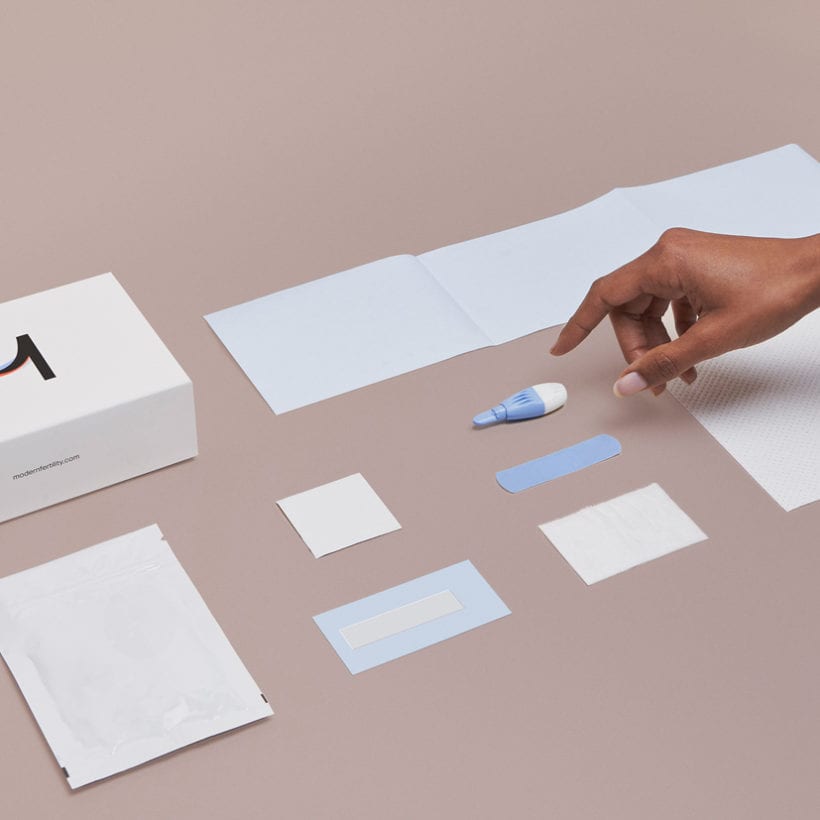Aunt Flow. The Time of the Month. The Red River.
Even though people who get their period apply to half the world’s population, we’ve always been uncomfortable talking about menstruation. Some Indigenous people view getting your period as a source of spiritual powerfulness and strength. But for most other cultures around the world, we share a familiar stigma that menstruation is something to be ashamed about. It’s important, however, that we no longer dance around the topic as the stigma can have an impact on public health crises like period poverty that refers to women and girls who are unable to afford feminine care products.
We talked to five movers and shakers who believe we all have a role in deconstructing the taboo and normalizing period discussions.
Dr. Charis Chambers, certified OB/GYN and also known as “The Period Doctor”
In partnership with Midol, Dr. Chambers is on a mission to shed light on period apologies. A Midol survey showed that 62% of menstruators have apologized for their periods — or for having period symptoms. Through the “No Apologies. Period.” campaign, they hope to shift the toxic stigma menstruators face every day and encourage the confidence for women of any age to make periods a sorry-free zone.
What are some ways that women participate in the period stigma without realizing it?
“They do it by apologizing for their periods, but also by failing to recognize their own period privilege. Some women may participate by criticizing a female coworker or colleague who has severely painful or heavy periods. They may say things like, “I know period cramps are not that painful,” or “I only need to go to the bathroom to change my tampon twice at work, why does she get to go every two hours?” Periods are different for everyone. Just because you have mild cramps and a light flow, it doesn’t mean another menstruator can’t have heavy periods with debilitating pain and a heavy flow. The key is that we need more support and understanding when it comes to periods, from both men and women,” says Chambers.
How can fathers play a part in normalizing period discussions with their younger daughters?
“My advice to dads is simple: Your daughter — who needed you when she took her first steps, when she lost her first tooth, and when she played her first sport — also needs you during puberty and periods. The truth is that daughters notice and remember how their dads responded to them getting their period. The nature of their dad’s response not only affects their relationship with their father but also affects their relationship with their changing body and with future romantic partners. This isn’t something to tap out of and just let mom handle. You can be an amazing support for your daughter by educating yourself on periods and by being prepared,” she says. (The Edit note: Dads, don’t be embarrassed to buy tampons or pads on your next Target run, for starters.)
Do you have a personal experience when you learned not to be ashamed of your period?
“I oddly felt ashamed of my period when I started my cycle later than my peers. Sure, I started at age 13, which is right around the average and my body was perfectly on time for me, but I felt like I wasn’t meeting societal standards before my period even started. By learning the facts, I realized nothing was ever wrong with me, to begin with. People can start periods anytime from the age of nine to 15, and it’s still normal. In my practice today, I’ve learned that many menstruators are carrying shame from issues and abnormalities that are based entirely on misconceptions. We fix that when we talk more openly about periods and when we prioritize medically accurate information,” she says.
Miranda Popen, period and hormone health expert, and founder of The Period Lab
Popen helps women with periods and hormonal imbalances through her social platforms, as well as through The Period Lab, a tool that helps you better understand and celebrate your hormones and guide you to optimal hormone health.
What is your first period story?
“It was before a skating competition. I was in my hotel room with my entire family there. We were packing up and I was changing into my competition dress, only to discover that my period arrived and it was possibly the worst timing of my life. I hid my period pants, my mom found them, and passed me an inch-thick diaper-like pad with wings and non-stop leak protection, then off to skating we went. There was no communication about what was happening to me. No empowerment or education. There was just a whisper to put this huge pad on. I’ve noticed a lot of women accept the shame put upon them by the response of others. How others, being men, respond to us has nothing to do with us, and everything to do with their own bodily discomfort. But the thing is they are only going to be as educated and informed as we are. If we don’t have a response or don’t ask the right questions, we continue the vicious cycle of letting their perspective of us define us as disgusting. This is a huge issue,” says Popen.
How can we reframe the way we speak about our periods?
“People today have been conditioned to react a certain way or respond because of society, because of the lack of conversations being had. This silence has been passed down from generations, teaching us to never inconvenience or never stand out — a.k.a bleed. The lack of communication does not encourage candid conversations surrounding what was going on with our health. There’s no empowerment or increasing education. This puts us into a toxic mentality but also doesn’t allow us to discuss noticeable issues with our health. I think there needs to be a level of education and understanding of our own bodily function to actually call menstruation by its name. When we do that, we give it the respect that it deserves vs hiding it because we’re ashamed of this incredible bodily function that allows us to train harder, recover faster, communicate with both sides of our brains, create babies, and last but not least: It is our monthly analysis,” she says.
Have you ever felt ashamed about your period?
“Personally, I have not ever felt ashamed of my period. I thank the strong female community I was raised in for this. I’ve bled in front of hundreds of people during recorded skating competitions, I’ve gone for hikes while bleeding without shame or embarrassment and I’ve made a loaf of bread, surrounded my guests while getting my period — this time I just didn’t want to stop because I was in a time crunch. However, there have definitely been moments where I could have allowed myself to be defined by someone’s disgust. Instead, I chose to question them why a normal bodily function makes them so uncomfortable. This took us down a rabbit hole of their own bodily discomfort and lack of education for women’s bodies,” she says.
What do you think women can do to understand their periods better?
“Your body has been beautifully designed. You weren’t pre-programmed to have hormonal imbalances, PMS-ing, symptoms simply because you’re a woman. For so long, we’ve been conditioned to believe the period is a painful sentence, and this is just one of the many burdens of being a woman. We begin to hate our cycles, apologize for them and hide them. These lies not only stop you from achieving total health, but they also keep you from reaching your full potential,” she says.
Sara Reardon, board-certified women’s health specialist, a physical therapist and owner of NOLA Pelvic Health in New Orleans, and also known as “The Vagina Whisperer”
The Vagina Whisperer started as pregnancy, postpartum, and pelvic health social media account that now focuses on all things that have to do with pelvic health education and bringing vaginas into the spotlight for honest conversations.
Why do you think women are conditioned to think that this normal process to our bodies — menstruation — is an inconvenience to others?
“For so long, anything to do with pelvic health has been very hush-hush. Pelvic health concerns can range from menstruation to urinary leakage to painful sex. This stigma follows women into postpartum and menopause when women often feel unsupported and uninformed about changes taking place in their bodies. Because vaginas aren’t often talked about, women don’t know what is normal, or who to talk to and where to go if something is wrong. If medical providers don’t specifically ask about something, patients are likely not to bring up concerns or ask questions. So, not only does menstruation need to be brought up in the home, but also in healthcare settings where some young women may feel more comfortable having private conversations. In addition, there is such a societal conflict about the sexualization of female genitalia and focus has often been only on the sexual function of the pelvic floor versus other very important functions it places a role in, such as urination, bowel movements, vaginal birth, and menstruation. Some of the stigma comes from having periods that can be seen as dirty or gross, which causes us to hide the experiences that go along with them,” says Reardon.
How can we reframe the way we speak about our periods — a.k.a. euphemisms like “Aunt Flow” — so that it doesn’t feed into this stigma?
“Words are powerful. I think calling something by its actual name makes it a very real physiological process vs something to joke about or hide. Laughing about some of the universal experiences we women have is great and community building, but it can also minimize the experiences we have as women and pass them off as not worthy of attention or treatment. When we use code language, it masks it as a topic that we can’t talk openly about, reinforcing that stigma that we shouldn’t talk about periods or have to hide the conversation. The word ‘period’ can be used interchangeably with menstruation, but that may not be common knowledge or feels too technical for some to use,” she says.
What are some ways we can approach these conversations with our kids?
“Hiding menstrual product use, not using the correct terminology when discussing it, and not participating in conversations about menstruation with your partner or kids all feed into the stigma. When my kids ask me questions about my period, my knee-jerk reaction is to tell them ‘don’t worry about it,’ but that reinforces that stigma that my boys shouldn’t be exposed to what happens in a woman’s body. So I have to pause, answer their questions, and satisfy their curiosity. When we start talking more medically and physiologically about these bodily processes, it can break down some of the stigmas to make it just a normal part of life for people with vaginas. I think this all starts with educating our youth. If we are able to change the conversation — actually just start having the conversation — with the youth of all genders, this helps normalize this process. It helps people understand their bodies better, how to manage them, how to talk about them, and the normalcy of it all. But it’s when we don’t talk about there is shame or confusion or embarrassment that perpetuates over time. Starting to talk about it is step one,” she says.
Rachel Block of First Period Stories
Rachel Block, Rachel Warner and Justine Massa are three friends who created a community where women have a place to share their unique first period stories and help others who are experiencing their period for the first time not feel so alone. To date, over 400 people from around the world have shared their stories. You can submit your own story via firstperiodstories.com.
Why do you think there’s a stigma behind women having their periods?
“The history of why there is a stigma behind menstruation is heavily debated. But one thing’s for certain. Menstruation stigma is a form of misogyny. Negative taboos condition us to believe that menstruation is something that needs to be hidden from others, and normally when we keep things secret, that’s out of shame, right? Growing up, we see health classes being separated by gender, people only asking for a tampon in hushed whispers, and/or people avoiding the subject altogether. All of these behaviors reinforce that menstruation is to be dealt with in secrecy,” says Block.
How can men contribute to dismantling the said stigma?
“Even if you are someone who does not menstruate, you still play a crucial role in normalizing menstruation. Don’t cringe when the subject comes up, but approach it with curiosity. Check-in on menstruators and ask how you can help them. Donate period products to those in need. There are so many ways to help, but the easiest is just by talking about it openly as if you were discussing the weather outside,” she says.
Can you recount a time where you felt ashamed about your period?
“I remember back in high school, my mom picked me up from school one day, and by the time we got back home, I had bled through my pad. I didn’t realize I had left some blood on the car seat, but my mom very nicely and discreetly asked me if I could go clean it. It was only my mom who noticed, and she didn’t make a big deal about it, but I still felt so embarrassed about leaving a bloodstain behind. Changing my thinking didn’t happen overnight. When menstruating is new, you’re still learning so much about your changing body and trying to learn the ins and outs of how to deal with it. Not to mention, you’re also dealing with the stigma, causing shame around your changing body. But as I got older, I became more comfortable with who I was and talking about my experiences with my period. I realized it’s a completely natural process and the entire human race depends on it. That’s not gross. That’s a superpower if anything,” she says.
Monica Yates, life coach, period whisperer, and public speaker based in Australia
Through the use of trauma healing, womb activation, alignment, somatic work, and other techniques, Yates has helped thousands of women heal their cycle and reconnect with their periods.
How do you think women are unknowingly participating in the stigma around periods?
“When women hide their period from loved ones and don’t honor their bodies desires at each different time of the month, it contributes to the stigma without them realizing. When their body doesn’t want to do a hard workout, but they force themselves to do it because they’re trying to ‘be like a man’ subconsciously, this is telling themselves that honoring their body is bad or weak. So many women don’t know the different phases of their cycle and how this affects their energy levels, communication, and work capacity. When you understand the different phases, you feel so powerful and connected to your body and this alone helps to dismantle the narratives that are in your head,” says Yates.
How can dads have conversations with their daughters about their periods?
“Each daughter is so different and they are completely different to their sons. This can make dads feel like they are failures and we can internalize it as ‘dad doesn’t love me’ or ‘dad thinks my period is gross’ when really it’s just that no one taught them how to behave in these scenarios. For dads, you don’t need to understand every bit about our periods, but simply becoming comfortable hearing the word ‘period’ or ‘blood’ can go a long way. Often, they freeze up and don’t know what to do, so they do nothing in fear of doing the wrong thing. Simply just ask: “What can I do for you right now?” says Yates.
How can you advocate for yourself with your medical professional to normalize period conversations?
“I think one of the biggest problems still, is that the majority of doctors do not have an in-depth education around a woman’s cycle. They are giving out drugs and hormonal birth control like it’s going out of fashion. And whilst women claim that being on birth control is ‘empowerment’. I argue that it is not unless you were fully informed of all of your non-hormonal and hormonal options, and then still chose hormonal. Going into a doctor’s office and being given drugs as your only option or hormonal birth control, and choosing one of them is not empowerment. I wish that doctors knew how to fix the root cause of period issues, rather than just resorting to surgery or hormonal birth control. I think this would also make women feel like they have control over their cycle and not that they’re broken,” she says.
We only recommend products we have independently researched, tested, and loved. If you purchase a product found through our links, Sunday Edit may earn an affiliate commission.







